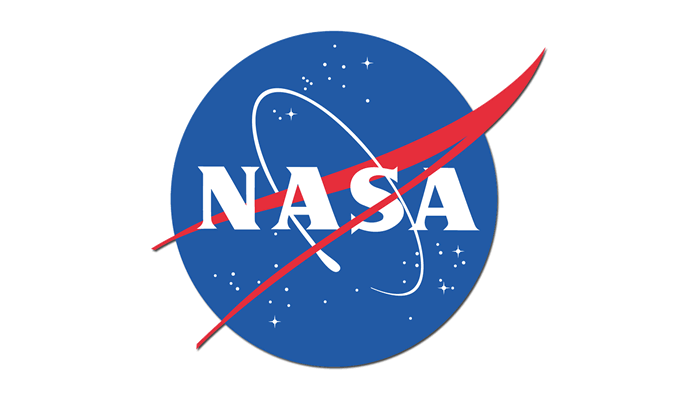The Future of NASA: Is Space Exploration in Trouble?
The news coming out of NASA at the time of this writing is all about Curiosity, the new Mars rover that is scheduled for launch Saturday, November 26, from Cape Canaveral, Florida. Science and astronomy bloggers all over the internet are gushing about it, and SPACE.com is maintaining a particularly close watch. For some, this could be shocking news. Isn’t the United States in the midst of a massive financial downturn (or recession, whichever term is the most useful to pundits at the time) where NASA’s funding was cut? That meant no more launches. Why is a new rover being finished and sent off into space?
Almost none of the mainstream astronomy sites or blogs will really tell much of that end of matters—the issue being largely political and full of grumbling from disgruntled scientists. However, there are some astronomers stepping up and unabashedly keeping the public informed on what they see happening in this particular sector of American scientific (especially in the area of astronomy) development. Or lack thereof, as the case may be.
Champions for the Cause
This past August, Neil Degrasse Tyson, astrophysicist and director of the Hayden Planetarium, was a guest on HBO’s Real Time with Bill Maher. The subject: Congress considering “pulling the plug” on the James Webb Space Telescope (JWST) slated to replace Hubble. Tyson’s argument is the strong voice of a scientist speaking out for, not only for people who already follow a similar profession, but those that will someday become scientists and engineers and those who live for expanding human knowledge and our place in the universe. An edited clip that features Tyson’s arguments can be found here:
RELATED: IT Budget: Pinch Pennies Without Hurting Operations
http://www.youtube.com/watch?v=tKdaRcptVz8
The bare bones of the issue is thus: NASA’s budget has been cut, could potentially be cut further, and the people making the cuts, as evidenced by Tyson’s research, are predominantly lawyers, people whose jobs are to argue best rather than to treat cold, hard facts as cold, hard facts. Tyson is not the only disgruntled scientist who is taking a stand on the issue.
Readers of Discover Magazine have become intimately familiar over the years with the hyper-intelligent and often humorous Bad Astronomy blog entries of Phil Plait, an astrophysicist whose accomplishments include work on the COBE satellite and the STIS on the Hubble Space Telescope. He is also well known amongst skeptics and sci-fi fans and addresses a broad range of related topics in his blog on a daily basis. For anyone who keeps up with Bad Astronomy regularly, Phil’s gripes about the politics he sees ruining science and learning for Americans of all ages can be very prevalent. He sandwiches these opinionated yet well-researched rants with posts of stunning photography from telescopes and satellites, concept images of the exoplanets recently discovered, informative talks of black holes and whatever else might threaten the earth’s very existence should the right conditions be met—everything he can pull forth as ammunition in his continuing battle to prove that science (especially NASA) needs all the funding and support it can get.
The Battle for the Stars
That same issue Bill Maher addressed on Real Time made its appearance in Bad Astronomy on November 23 as having finally reached a congressional conclusion. The JWST project was saved, but Plait claims that the overall result of the budget issue is bad news for NASA. What exactly does this mean? As per the budget President Obama signed into reality (emphasis added):
RELATED: IT Budget: Items To Remain
The agreement accommodates cost growth in the James Webb Space Telescope (JWST) by making commensurate reductions in other programs, and institutes several new oversight measures for JWST’s continuing development.
If for nothing else than to show exactly how this doesn’t help NASA for either the fiscal 2012 year or beyond, Plait even draws out the numbers. NASA will get a grand total of $17.8 billion for the coming year. This is approximately “$600M less than last year, and over $900M less than what President Obama wanted.” There is nothing good there. It’s almost like the budget bill is saying, “Hey! At least we’re letting you build your telescope!” in a very non-apology sort of way.
Plait continues:
“I’m glad that the project won’t be canceled, but I’m very concerned about the source of that money. I can do that math. All things being equal, a $150M increase with $530M dedicated to JWST means NASA will have to cut other programs to the tune of $380 million.”
NASA is now forced to sacrifice projects equally important to be able to continue to explore the stars, to expand human understanding of our universe, to dream of the future, as Tyson reminds us that we once did. The cutting of those other projects means further job loss in the scientific sector while…what? To date, there hasn’t been any report out of Washington to give much confidence that anything NASA stands for—from education to exploration—will see an equal budget to last year let alone an increase. We get a swanky new telescope, but reduced infrastructure to take the information gleaned from said telescope to properly and intellectually invest in our future as a planet. The effects of NASA’s research expand far out and beyond the confines of political borders.
RELATED: What is Server Load?
What NASA does have funding for this coming year is an investment into a new rocket system. Plait found this a trifle ironic as commercial space (private companies funded through NASA, such as Space X, for their own marketable projects) takes a hit as a consequence. This means that $1.8 billion gets to go into the Space Launch System, a program to develop an improved rocket system to lift more into orbit than the Shuttle ever could and making deep space travel even more possible. This implies emphasis on further human exploration of the moon, Mars, and near-Earth asteroids and was a thing feared lost with the cancellation of the Constellation rocket system.
What does this mean for NASA overall in the future? Even Phil Plait doesn’t claim to know. The cuts are pennies on the dollar in the grand scope of the US budget (NASA makes up less than 1% of the overall expenditure), so such squabbles over it seem pointless to the majority of NASA/science supporters. The budget for the program could be realistically doubled, and the rest of the federal programs would barely notice. However, there is no denying that NASA happens to have the unfortunate position of being in the middle of a primarily political struggle, and such a matter never has a guaranteed outcome regardless of the proven facts scientists can throw at it.




